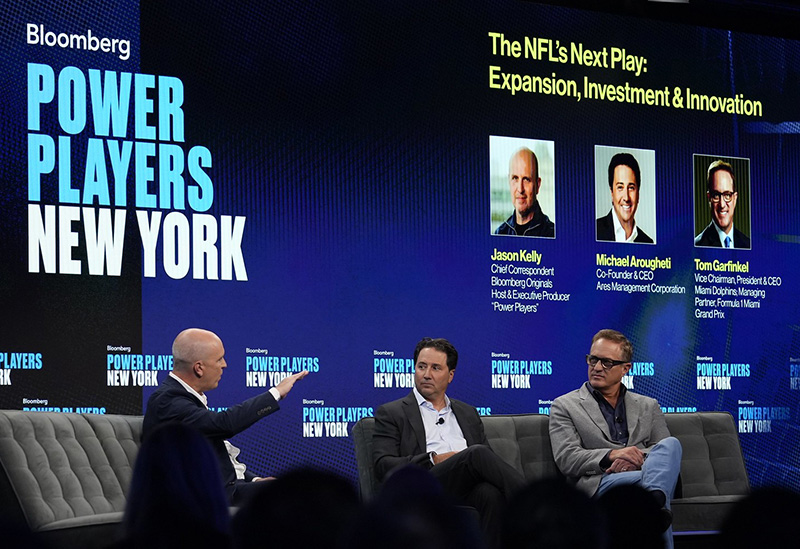Consider what that journey actually looks like: A promising high school pitcher needs specialized training facilities, nutrition consultants, and data analytics to track his development. He requires sports agents, media training, and eventually ticketing platforms when fans come to watch him play. Each touchpoint represents a business—and a potential investment. Arougheti said, “the structure of the market has fundamentally changed in a way that is now creating opportunities not just in sports teams and leagues, but everything in the sports ecosystem.”
Rather than compete for limited franchise stakes, Ares began building positions across this entire pipeline—everything from stadium assets and real estate development opportunities to food and beverage and hospitality to ticketing and data analytics.
“I think we were early to this opportunity,” said Arougheti. “And I think we were fortunate that we had enough creativity and access to capital and relationship credibility to really unlock value here. But our approach has been very differentiated,” he reflected. While competitors focused on individual assets, Ares saw the connections between them—and realized the game was much bigger than many imagined.






